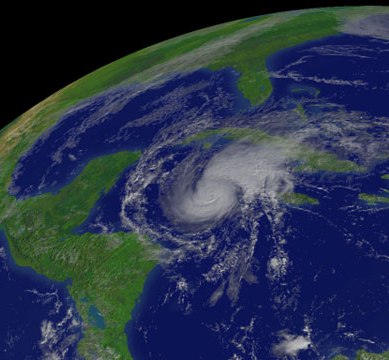Archive for July 29th, 2009

Radar to put Cayman on map
 (CNS): What has been described as a weather black hole round the Cayman Islands will be a thing of the past by the end of 2011 with the installation of a Doppler weather radar system on Grand Cayman. Part of a project that offers the Cayman Islands Airports Authority (CIAA) access to US$5.5 million (€4.16 million) from the European Commission (EC) to establish an early warning radar system in the Cayman Islands, the radar will give Cayman its own severe weather warning system and enable us to track dangerous weather systems, such as hurricanes, ourselves.
(CNS): What has been described as a weather black hole round the Cayman Islands will be a thing of the past by the end of 2011 with the installation of a Doppler weather radar system on Grand Cayman. Part of a project that offers the Cayman Islands Airports Authority (CIAA) access to US$5.5 million (€4.16 million) from the European Commission (EC) to establish an early warning radar system in the Cayman Islands, the radar will give Cayman its own severe weather warning system and enable us to track dangerous weather systems, such as hurricanes, ourselves.
Speaking at a specially convened conference on Wednesday morning, to announce the project, Leader of Government Business McKeeva Bush explained that the system will cover a range of 400km (250 miles), providing weather surveillance over all three islands, as well as surrounding maritime areas. It will also be linked to a regional radar network, including in Trinidadand Tobago, Barbados, Belize and Guyana.
The LoGB said that while the EU is funding the bulk of the project the Cayman Islands government will commit €500,000 in kind directed towards land acquisition, the provision of services and local technical support. Through the CIAA, Cayman will also assume responsibility for co-ordinating the technical aspects of the project and for operating and maintaining the radar once it is installed.
“When it comes to disaster management, it is particularly true that strength is to be found in numbers. And while the establishment of this radar system will no doubt strengthen our local disaster management capability, it will even more importantly enable us to better contribute towards regional disaster management and mitigation efforts,” Bush added.
A technical team from the Caribbean Meteorological Organisation (CMO) is currently in Cayman for discussions with Director of Meteorological Services Fred Sambula and other government officials and to explore potential sites for locating the weather radar, after which its specifications and the types of structure to accommodate the system will be decided.
Coordinating CMO Director Tyrone Sutherland said that the radar would be installed on Grand Cayman, and although a location has not yet been identified, he said the eastern end of the island would be the most likely choice. It will be installed in as remote a location as possible away from residential areas but it also it had to be easily accessible and on as high ground as possible. The CIAA will tender for the supply and installation of the tower through an open works tender.
Sambula said the system would be a powerful, high-precision Doppler radar, which is particularly suited to the extremely heavy rainfall and thunderstorm activity experienced in tropical oceanic regions. He explained that it would allow easier observation and study of heavy rainfall, waterspouts and so-called ’freak’ storms. “The Doppler capabilities will enable forecasters to more accurately warn of wind shear problems which are hazardous to landing and departing aircraft,” he added
The system is expected to boost the wider region’s ability to prepare for natural disasters, and once complete the Meteorological Services will provide radar information to the public, the media, and Hazard Management of the Cayman Islands (HMCI).
Minister for District Administration, Works and Gender Affairs Juliana O’Connor-Connolly said recent history has shown how vulnerable Cayman is to hurricanes and other severe weather hazards. “Our weather experts have done a tremendous job in warning residents as these hazards approach but the timeliness and accuracy of warnings will be significantly improved with real-time information from a weather radar system,” she said.

Make sure travel documents are up to date
 (CNS): Official documents such as passports, birth and marriage certificates, naturalisation and registration papers, Caymanian Status and Permanent Residence certificates, should be kept together in waterproof bags or containers and stored securely in a place that is easily accessible during emergencies, the Passport and Corporate Services (PCS) Office says and urges everyone to ensure that official documents are always secured and current – during the hurricane season and beyond.Residents are especially reminded to check that family travel documents are in order. “Advance preparation is critical during hurricane season,” said Head of Passport & Corporate Services Janice McLean in a release from that office.
(CNS): Official documents such as passports, birth and marriage certificates, naturalisation and registration papers, Caymanian Status and Permanent Residence certificates, should be kept together in waterproof bags or containers and stored securely in a place that is easily accessible during emergencies, the Passport and Corporate Services (PCS) Office says and urges everyone to ensure that official documents are always secured and current – during the hurricane season and beyond.Residents are especially reminded to check that family travel documents are in order. “Advance preparation is critical during hurricane season,” said Head of Passport & Corporate Services Janice McLean in a release from that office.
“This is so important for those who decide to leave the Islands because of a storm or any other emergency. Residents must remember that travel documents cannot be issued when the PCS or other government offices close due to inclement weather or on weekends and holidays,” she said.
Acting Chief Immigration Officer Kerry Nixon agreed. “Planning ahead helps reduce stress during an emergency,” she said. “Therefore, while PCS staffers accommodate emergency medical travel demands, residents should periodically check their documents to ensure that they are valid for routine or other emergency travel.”
Emphasizing the importance of precautionary measures during hurricane season Nixon added, “PSC employees must also secure their families and homes. They cannot be expected to endanger themselves to facilitate persons who neglect to ensure that their travel documents are in order. It is wise to be prepared.”
People travelling to the United States are also advised to pay careful attention to the following:
Holders of Cayman Islands or United Kingdom passports with a US visitor’s visa may travel to the US on commercial, charter or air ambulance flights.
Holders of Cayman Islands passports without a US visitor’s visa must obtain a US visa waiver from the Passport Office to travel to the US on commercial or air ambulance flights.
Holders of UK passports without a US visitor’s visa but with an approval from the Electronic System for Travel Authorization may travel to the US on commercial flights only.
Holders of Cayman Islands passports should ensure that the passports are valid for at least six months after the intended date of departure from the US.
Residents travelling elsewhere should also know and comply with the travel requirements of respective destinations. For example, anyone holding a Caymanian passport who intends visiting Jamaica must first obtain a visitor’s visa for that island.

Police name visitor who died
(CNS): Police have named the 71-year-old man who died while swimming at Rum Point on Friday, 24 July. He was John Henry Smallis from California, USA. The RCIPS sends its condolences to family and friends of the victim. Mr Smallis had been vacationing in the Cayman Islands with relatives. On Friday, he had been swimming at Rum Point and had got into difficulty. He was found in the water unresponsive and was taken to hospital but was unfortunately pronounced dead. An investigation is being carried out by Bodden Town detectives and a post mortem has been conducted. At this point there is nothing to suggest any suspicious circumstances.
Robots take on firefighting
(BBC): A team of fire-fighting robots has been unveiled by defence contractor QinetiQ at a demonstration in London. The display showcased a quartet of robots aimed at tackling the particular risk of fires involving cylinders of the industrial gas acetylene. The robots range from a nimble, stair-climbing reconnaissance unit to a diesel-powered robot with a large claw. The two-year project is funded by Network Rail, the Highways Agency and Transport for London. Organised in conjunction with the London Fire Brigade, the project has been on trial since last year, with the team of robots on call for incidents that happen in London and the Southeast.

Evolution’s winners & losers
 (Eureka): Mammals and many species of birds and fish are among evolution’s "winners," while crocodiles, alligators and a reptile cousin of snakes known as the tuatara are among the losers, according to new research by UCLA scientists and colleagues. "Our results indicate that mammals are special," said Michael Alfaro, a UCLA assistant professor of ecology and evolutionary biology and lead author of the research.
(Eureka): Mammals and many species of birds and fish are among evolution’s "winners," while crocodiles, alligators and a reptile cousin of snakes known as the tuatara are among the losers, according to new research by UCLA scientists and colleagues. "Our results indicate that mammals are special," said Michael Alfaro, a UCLA assistant professor of ecology and evolutionary biology and lead author of the research.
Cruise line profits fall
(WJS): The world’s second largest cruise operator, Royal Caribbean Cruises Ltd. swung to a second-quarter loss amid charges and lower revenue, as the prolonged slump in travel spending led the cruise-ship operator to post its second straight quarterly loss. The Miami company also issued a weak third-quarter view and lowered its full-year outlook, while boosting its expectation of the effects of the H1N1 virus on its earnings. Royal Caribbean expects net yields to fall about 14% this year, lower than its April view of a 12% to 13% drop.

Hedge Fund rules to change
 (FT.Com): Controversial draft regulations for hedge funds will be substantially amended, the new head of the European parliament’s economic and monetary affairs committee has told the Financial Times. Sharon Bowles, British MEP and new chair of the committee, said European pension funds and institutional investors faced “excommunication” from global capital markets if the draft directive on alternative investment funds was implemented unchanged. The proposals, drawn up amid public and political anger over the risks taken by some financial institutions that led to the crisis, have drawn the ire of Hedge Funds and financial centres around the world.
(FT.Com): Controversial draft regulations for hedge funds will be substantially amended, the new head of the European parliament’s economic and monetary affairs committee has told the Financial Times. Sharon Bowles, British MEP and new chair of the committee, said European pension funds and institutional investors faced “excommunication” from global capital markets if the draft directive on alternative investment funds was implemented unchanged. The proposals, drawn up amid public and political anger over the risks taken by some financial institutions that led to the crisis, have drawn the ire of Hedge Funds and financial centres around the world.

Public consultation on potentially invasive technology
 (CNS): Public input is being sought on a controversial technology used by internet service providers (ISPs) that critics claim leaves internet users’ private information vulnerable to abuse, while others say it has the ability to protect users from viruses and spam and make internet service more efficient. The Information and Communications Technology Authority (ICTA) has launched a public consultation on the use of Deep Packet Inspection (DPI) and similar technologies, which gives ISPs the ability to access the content of all unencrypted internet traffic, including web surfing data, email, and peer-to-peer downloads.
(CNS): Public input is being sought on a controversial technology used by internet service providers (ISPs) that critics claim leaves internet users’ private information vulnerable to abuse, while others say it has the ability to protect users from viruses and spam and make internet service more efficient. The Information and Communications Technology Authority (ICTA) has launched a public consultation on the use of Deep Packet Inspection (DPI) and similar technologies, which gives ISPs the ability to access the content of all unencrypted internet traffic, including web surfing data, email, and peer-to-peer downloads.
Deep Packet Inspection is used by ISPs in the US to conform to the Communications Assistance for Law Enforcement Act (CALEA), the US government-ordered internet wire-tapping directive. And according to the Wall Street Journal, the same technology was used by the Iranian government to block communication and also to monitor it to gather information about individuals, as well as alter it for disinformation purposes. Recently, British Telecom dropped an internet tracking ad-delivery system WebWise, developed by Phorm and using DPI technology, which is thought to be a reaction to a public campaign against it.
“The potential for abuse is enormous,” a local IT professional told CNS. “Most people don’t fully understand that virtually everything about them is digitized and shipped around on the net routinely. It’s as if all of our private information is available for checkout at the public library. It’s going to become much bigger soon – particularly as the push to modernize and simplify medical record keeping gains momentum. While I think that is an important thing to do, it should not be done without also defining what privacy protections should be in place and precisely how they will be implemented.”
As well as controversy surrounding privacy, DPI has also sparked a “Net Neutrality” debate, which centres around whether or not network operators should be permitted to vary the bandwidth being provided to customers based upon the protocols or applications that the customer is using.
The IT professional, who asked to remain anonymous, said, “The ability to sift traffic and allocate bandwidth based on type of activity is potentially good but also potentially abusive,
particularly in regions where there is little competition. In the case of Skype we could find ourselves paying more for high quality service or just getting lousy service. ISPs could adopt a more complex fee structure for high speed access. Consumers could be charged extra for a guarantee of high quality VoIP service, for example. Local telecom companies could potentially
gain an unfair advantage for their Netspeak VoIP service by assuring it got a better quality of service as compared to Skype VoIP traffic.”
However, he added, “There are reasons why this may not be likely to happen – it simply may be
more trouble than it’s worth since the technology for squeezing tremendous bandwidth from existing fibre circuits is developing very rapidly. There is a lot of disagreement in the technical community about the ability to expand capacity versus the ability to consume it. Some feel there is huge overcapacity, others predict we’ll run short in the not too distant future. Setting that argument aside, I do worry about such a critical asset in the hands of for profit organizations with questionable regulatory oversight,” he said.
ICTA Managing Director David Archbold said ISPs could argue that while they had the hardware to see private information, they had not installed the software. But once the technology was in place, it would make it possible for ISPs to have access to any data that was not encrypted. He noted, however, that too much encrypted data uses up more resources and slows the system down.
On the other hand, the ICTA points out that there are potential benefits in the use of DPI to both consumers and the telecommunications industry. It enables the industry to guarantee different levels of service by associating particular application-types with particular usage-plans or priority levels, potentially helping to prevent network congestion and thus improve an ISPs service to customers. Further, information gained from DPI can assist ISPs with network design and their plans for network expansion, network security and the delivery of new and enhanced services.
Companies marketing DPI have proposed that ISPs can also enhance their revenue streams by providing targeted advertising and by charging content providers fees to ensure that customers have “priority access” to their services.
The authority is inviting all stakeholders to provide their views on this technology, which will be considered by the ICTA Board. CNS understands that the existing board is still in place, though the UDP has made changes to other boards.
According to the ICTA, copies of the posted consultation document may be obtained by accessing the ICTA web site at www.icta.ky or by calling the ICTA offices at 946-ICTA (4282). Comments on the Public Consultation are to be submitted to the ICTA by 31 August 2009. Submissions may be sent by e-mail to: consultations@icta.ky; or delivered to the ICTA at Alissta Tower, Third Floor; or mailed to PO Box 2502 GT, Grand Cayman; or sent by fax to (345) 945-8284.

Migrants feared drowned
(The Guardian): Up to 85 people are missing after an overloaded sailboat carrying about 200 Haitian migrants sank off Turks and Caicos Islands, the US coastguard said today. The boat struck a reef as it tried to elude police yesterday afternoon, a survivor said. Rescuers found 113 migrants stranded on two reefs about two miles south-east of West Caicos island. Most of them were ferried to land by authorities. Two bodies were also recovered, said Lieutenant Commander Matt Moorlag, a coastguard spokesman.

Jamaican government struggles to pay suppliers
(Gleaner): The cash crunch facing the Jamaican Government is starting to hurt businesses that supply goods and services to the state. Over the last three months, several businesses have not been paid and the operators have been unsuccessful in their efforts to get a timeline on when they will get their money. A senior government official admitted that there was a major cash flow problem. "At present, we are only getting warrants from the finance ministry to pay salaries. None of our suppliers are being paid," the government official said on condition that she not be named.